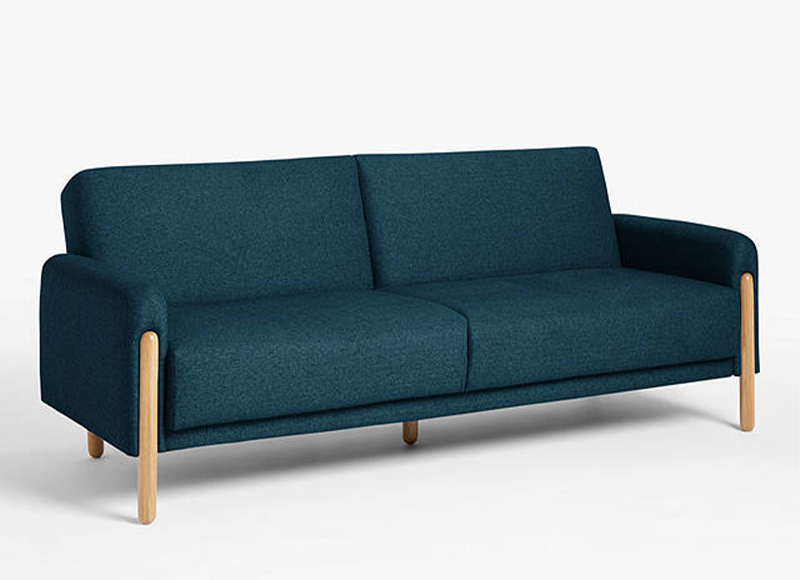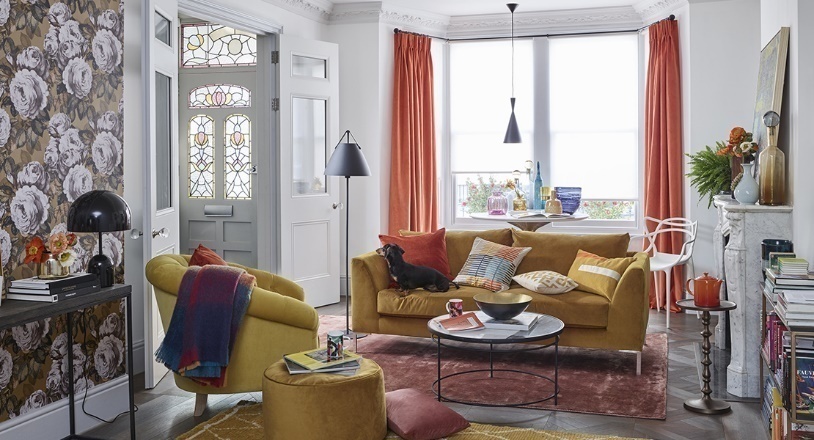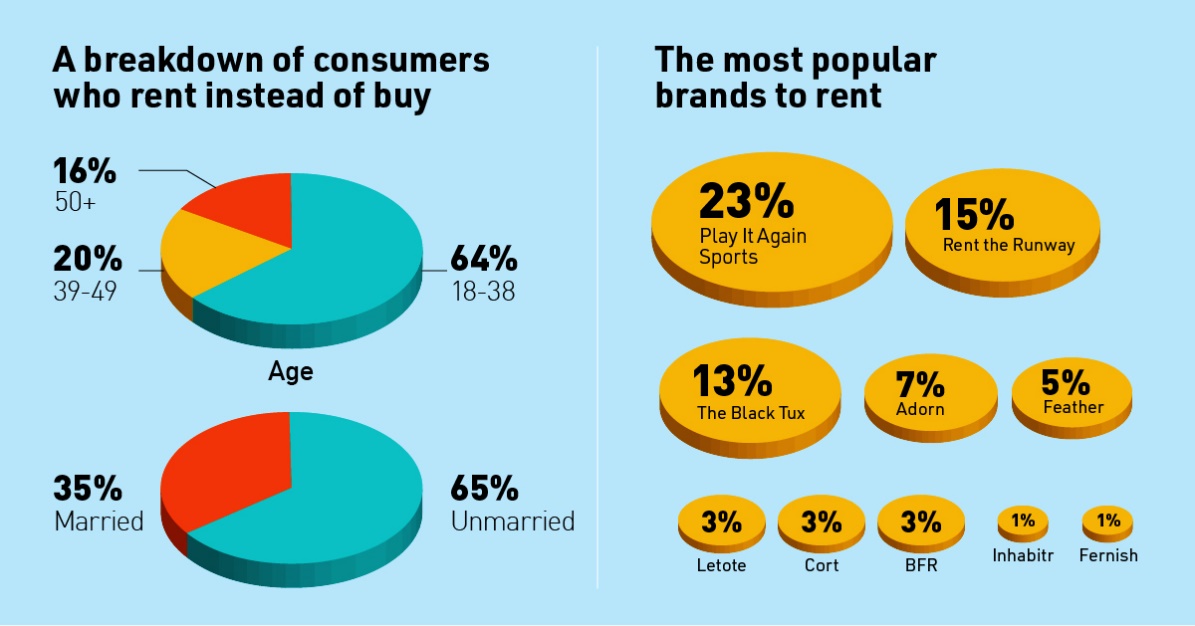Summary Section
John Lewis and Fat Liama created a partnership for the furniture rental business. The idea of furniture renting is new in the market, penetrating fast. In this case, the partnership sought to rent out sofas, desks, chairs, and coffee tables. The furniture was to be rented out to the clients for 6 to 12 months, after which the furniture could be recovered unless the clients bought it. Also, the partnership rents out dining tables, bar stools, and beds for a similar period. The sofa bed is another interesting kind of furniture that forms part of the rental service for the partnership.
The partnership’s furniture rental business captures how people live and hence espouses the ingenuity of the partnership in exploring a business opportunity. For instance, sofa beds are an innovation that is attracting more customers. The fact that the furniture rental business is a new idea makes the partnership have a large command in the market. This notwithstanding, the partnership’s furniture rental business faces various operational challenges bordering order winners and qualifiers, quality, cost, speed, flexibility, and dependability. By and large, John Lewis and Fat Liama’s partnership is among the most successful furniture rental businesses that set the pace for subsequent market players globally.
Introduction
When the partnership launched its business, two-thirds of the clientele that bought furniture were furnishing rented properties, and just a quarter had bought homes (Lewis,2022, n.p.). The finding indicates that most people are passionate about renting the property rather than owning it.
The various furniture types, including the sofas, desks, chairs and coffee tables, dining tables, bar stools, and beds and sofa beds, are rented out to the clients for a minimum period of six months and a maximum of twelve months (Research Nester, 2021). However, if the clients wish to purchase the furniture after the lease period has expired, they are free to buy them unconditionally. This is one aspect that makes the partnership’s furniture rental business booming. In this case, the business is advantageous because they can recover their setback and rent it out to other clients. The furniture can only undergo minor furnishings; hence there is a minimization of costs than when selling similar furniture.
Details of the Process – Include Costs to Rent, Lead Times, Product Range, and Process for Delivery and Collection
The wide range of furniture rented out by partnership reflects the creativity and innovativeness of the partnership in making inroads in the market. For instance, then sofa beds are an innovation that considers the need for guests to have sleepovers seamlessly (Abbott, 2021, n.p.; Fig. 3). In this case, there is no need for an arrangement for extra accommodation costs. The inclusion of office chairs makes the partnership’s customization perfect, given that they cover many lifestyles, including formal social, fashionist, political and domestic lifestyles.

The partnership’s business covers the consumers’ shopping habits, hence taking care of the diversity of customer choices, preferences, and tastes. For instance, some customers are more interested in access and experience than owning various types of furniture per se. For this reason, many prefer to rent furniture and change to other designs at will without the hustle of marketing the already-bought furniture as second-hand products on various marketing sites. The furniture rental business is advantageous to the clientele given the affordability of such furniture when rented out, unlike when bought. The pricing for desk chairs is pegged at £6 per month, while stylish three-seater sofas are rented out for £32 (Lewis,2022, n.p.; Fig. 2). The clients have the option of purchasing the furniture at a relatively lower price if they wish. The other advantage for the users is that the ultimate selling price for the rented-out furniture is lower when the customers rent the property for a relatively long period. Additionally, a long period of renting also implies that a clientele will be offered low rental prices for his preferred furniture types. Such terms are the most attractive to many customers, hence the enterprise’s booming furniture rental business.

The furniture rental business is the next big thing, given that the customers are allowed to try out any product they intend to purchase later. Such an opportunity allows customers to experience the product and identify its weaknesses and strengths before making it a purchase decision. The furniture product range centres on over 50 different furniture items hence offering freedom of choice for the customers. The furniture rental business is sustainable for the clientele and the enterprise, given that products can be repaired and rented to new customers. Customers prefer experiencing new things, especially furniture, to improve house decor and ambiance. The other type of furniture that is iconic is the Soren office chair. The chair can be rented out at £17 yet retails at £399. However, a sofa rents for £80 for twelve months. However, the same sofa rents for £190 when the deal is for a mere three months (Lewis,2022, n.p.). The delivery costs for the rental business are pegged at £9.99, although there are no collection charges after the expiry of the rental period (Lewis,2022, n.p.). The furniture rental business is the most ideal for the gig economy. In most of the gig economy, young adults vacate homes almost every 12 months. In this case, the furniture rental business comes in handy. Also, the rented furniture is insured by the renting company. However, the clientele is always advised to care for the nurture, given that insurance often does not cover disasters like red wine spillage. Such costs are passed to the customer whenever they occur.
The company’s deals are enticing given that the partnership has already liaised with retailers to broker deals wherein customers who wish to purchase the products after paying for rentals, the latter charges are deducted from the initial purchase cost, and the clientele covers the balance to own the product (Wigwam, 2022, n.p.). The other interesting aspect of the marketing mapping of the partnership is that it is targeting the needs, references, and tastes of the next generation of customers. The embrace of renting items and the sharing economy is one of the things that the partnership is capitalizing on to gain dominance in the market. The partnership’s furniture rental business is fast growing and spreading to different market segments (Growth Market Reports, 2022, n.p.).The partnership’s vision is to offer a buyback option for its clientele by 2025 (Fig. 1). Indeed, the company’s operations pursue such an ultimate goal, given that the partnership always provides the customers with sustainable means of owning property. In this business, the euphoria of marketers of substandard property is eliminated, given that the users will have to experience the product before deciding to own it.

Assessment of the Operational Challenges of the Business Model Using Some of the Operations Management Frameworks That Were Studied in the Module, for Example, Order Winners and Qualifiers, Quality, Cost, Speed, Flexibility, and Dependability
The operational challenges that the John Lewis and Fat Liama partnership have encountered in its furniture rental business include the cost of collecting the furniture after the expiry of the rental period for various clientele. This is because the partnership must collect the furniture from the client’s location. Additionally, the cumulative cost increases the operating cost given that the Millenials are a generation that shifts homes after every year (Jones,2019, n.p.; Fig. 4). For this reason, the rate of collection of furniture is high in such a target market population compared to other generations that would wish to purchase a product after renting.

The other operational challenge is the issue of insurance of the redirects. Litigations form part of the partnership’s downsides in the furniture rental business. This is large because some clients will claim that insurance pays for some risks like the spillage of red wine on the sofas, yet the partnership could maintain that such risks are to be paid for by the customers. Such litigations increase the costs of operating business for the partnership, especially when the customer wins a case against the partnership. The quality of the furniture is often compromised by the time the rental period is over; hence repairing the furniture does not help in regaining the quality of such furniture when renting it out.
Consequently, the rental price for such furniture could be considerably lower than when they were brand new. Customers are often cautious, particular, and keen on quality. Therefore, they often bypass a product that does not match their definition of quality. This could lead to high storage costs for furniture that remains unrented for a long time.
Worse still, such futures are sold at relatively throw-away prices hence a loss to the partnership (Wigwam, 2022, n.p.). The cost of a product may not be covered by the rentals, especially when the rental period is lower. This is because a piece of furniture could be misused and lose its value over a short time, which could form part of the reason for the customer returning the furniture to the partnership. In such an eventuality, the partnership loses, given that such an operational challenge is against its control. Custer can be crafty to ensure that they do not incur liability for the wear and tear of a product. Order winners and qualifiers’ expectations are often high; hence it costs the partnership a lot to impress the clients who win the orders for them to remain loyal customers of the partnership. Additionally, the order winners and qualifiers could be great customers to the partnership at the expense of securing new customers.
Consequently, the customer base could shrink because of dominant and loyal customers. The other issue concerns the speed of delivery of the furniture to the designated designations. In this case, the speed of such delivery is subject to the logistics in the partnership business. For this reason, the delivery of the products may not be at the time expected by the clients. This could be construed to imply poor service. Hence some customers could back off. Flexibility is another crucial factor that is purely operational. The partnership could be flexible to the extent that such flexibility does not cost its profit (Wigwam, 2022, n.p.). For instance, renting a furniture item is subject to flexibility wherein the partnership offers three months, six months, and two months.
The rental charge for the items is subject to negotiable hence flexibility on the part of the partnership. Also, the enterprise’s flexibility manifests in the option to buy it provides to the customers. However, the furniture rental business is not flexible regarding the insurable costs like red wine spillage on the sofas. In terms of dependability, the partnership business is relatively unreliable, given that its competitors provide an alternative to disgruntled customers.
The pricing aspect is one of the aspects whereby the partnership is not dependable. This is large because the partnership always focuses on covering the cost f the furniture item by the tie of the expiry of the rental period (Lewis,2022, n.p.). This is unfair to the clientele because the rental charge should not be the same as the retail price. In this case, the whole aspect of rating becomes a burden to the client. It also becomes a ripoff, especially when the clientele covers the cost of the product by the tie the rent period expires. The other issue concerns cost. The lack of dependability manifests in the clientele incurring the delivery cost. This increases the cost of renting the product hence exploitation.
Summary of the Overall Operational Strategy for the Future of Your Selected Business for the Next Five Years and Outline How They Might Monitor It
John Lewis and Fat Liama’s partnership’s furniture renting business is a great idea. There is a need to align the business’s operations to the millennial lifestyle, given that this generation’s lifestyle calls for the furniture renting business. This provides a great market for the partnership. The business needs to expand its offers beyond offering sofas, desks, chairs, coffee tables, dining tables, bar stools, beds, and sofa beds for renting (Wigwam, 2022, n.p.). Furniture is rented out for three months, six months, or one year, depending on the client’s preference. The monthly rent charges should be calibrated to match the people’s living costs to enhance sales and profits. For this reason, the product renting charges should not only be computed subject to the retail price of any furniture item.
The partnership should focus on the plight of the clientele rather than merely focusing on the recovery of the retail price (Lewis,2022, n.p.). The business should address all the operational uses that concern the partnership. For instance, the partnership does not cover some disasters like the spillage of red wine on the sofas. Such related issues often cause friction between the business and its clients. Addressing such issues requires a comprehensive review of the covered risks in the insurance coverage for the furniture items. Accommodating more risks will attract more clientele. The other uses concern the cost of conducting business. For instance, clients foot the cost of delivery, which increases the cost of renting an item. Also, the product delivery could take longer depending on the company’s logistics. Such could cause dissatisfaction in the customer. The cost of repairing the furniture after the expiry of the rental period is often high, given that such furnishing must be done to attract more customers. The other issues concern the order winners and qualifiers, which often take advantage of their wins to dominate the business. Consequently, they limit potential customers from also taking part in the bidding for orders (Urquhart,2020, n.p.).
The speed aspect should be influenced by the efficiency of the employees of the partnership and the prompt payment of the customers. In this case, the customer’s payment mode could delay the product delivery; hence such operational issues could be an issue of concern for the client. Often, the delivery cost is incurred by the clientele hence the speed at which the product is delivered to him is influenced by his promptness in covering the delivery cost besides the furniture rental charges for the particular furniture.
The other operational strategy in five years in the furniture renting business is that the clientele should have the leeway to extend the renting period after renting the item, and the contract signed at the point of engaging the furniture owner should not be the final negotiation on the renting period. This is because such a limitation is disadvantageous as the clientele only has the option of buying the property after the expiry of the leasing period. The other operational future strategy for the company is to have a radical review of furniture maintenance costs which includes repair of the furniture is often costly. Also, the furniture repair should match the clientele’s preferences and expectations.
References
Abbott, L., 2021. John Lewis expands furniture rental service.
Growth Market Reports, 2022. Furniture Rental Market. [Online].
Jones, K.,2019. Generation Rent: How Millennials are Fueling the Rental Economy.
Lewis, J., 2022. John Lewis is expanding its furniture rental service after the first collection was gone within 48 hours.
Stevens, P., 2020. John Lewis introduces furniture rental scheme.
Urquhart, M., 2020. John Lewis offers furniture rental service.
Research Nester, 2021. Commercial and Residential Furniture Rental Market By Product (Chair, Table, Sofas, Desks, Storage Units & Files, Work Stations and Others); By Distribution Channel (Online and Offline) – Global Industry Analysis & Opportunity Evaluation 2018-2025.
Wigwam, 2022. John Lewis partners with Fat Llama to test furniture rental service.